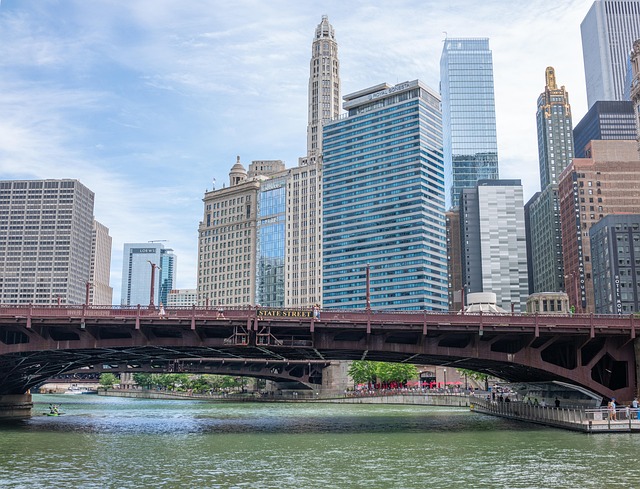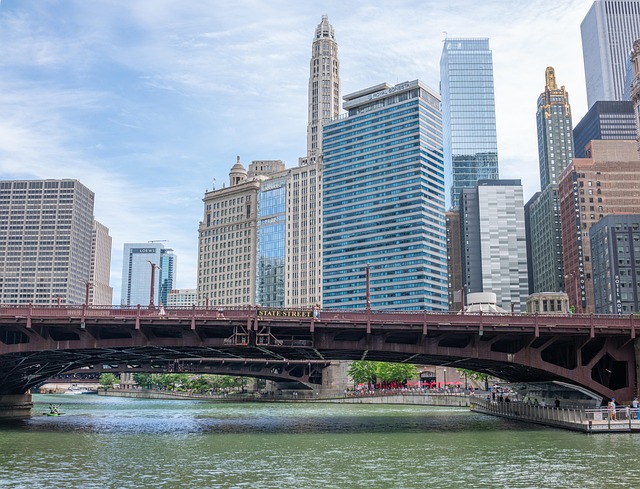Selling your house after a fire in Chicago requires understanding specific property appraisal laws that consider reconstruction costs and market trends, with an independent appraiser crucial for unbiased damage assessments. Homeowners should prioritize structural repairs, minimize visible damage, and stage their home to attract buyers in the competitive market. Insurance and property tax challenges exist, so reviewing policies and seeking professional appraisals can help minimize costs and appeal assessments, given the unique circumstances of selling post-fire in Chicago.
In the aftermath of a fire, homeowners in Chicago often face complex paths toward recovery. This article guides you through the critical phase of selling your house after a fire, focusing on Illinois property appraisal laws and regulations. Learn how an independent appraiser can play a pivotal role in Chicago fire damage claims, and discover practical tips for preparing your home for an accurate appraisal. Additionally, we’ll explore insurance and property tax implications to help you navigate this challenging time effectively.
- Understanding Illinois Property Appraisal Laws and Regulations After a Fire
- The Role of an Independent Appraiser in Chicago Fire Damage Claims
- Preparing Your House for Appraisal: Tips for Selling After a Fire
- Navigating Insurance and Property Tax Implications Following a Home Fire
Understanding Illinois Property Appraisal Laws and Regulations After a Fire

After a fire, navigating the process of selling your house in Chicago involves understanding specific property appraisal laws and regulations. Illinois has certain guidelines that come into play when assessing damaged properties, ensuring fairness for both homeowners and buyers. These regulations are designed to help determine the accurate value of a home post-fire, taking into account not just the structure but also potential reconstruction costs and the impact on the local real estate market.
When selling your house after a fire in Chicago, an appraiser will carefully inspect the property, documenting any damage, and considering factors like the age of the home, surrounding properties, and current market trends. They’ll then provide an estimate, taking into account both the reduced value of the damaged structure and any additional expenses for repairs or rebuilding. Understanding this process is crucial to ensuring a fair transaction when selling your fire-damaged Chicago property.
The Role of an Independent Appraiser in Chicago Fire Damage Claims

In the aftermath of a fire, homeowners in Chicago often find themselves navigating complex insurance claims and the process of repairing or rebuilding their homes. Here, an independent appraiser plays a pivotal role in helping to determine the value of the property after damage from a fire. These professionals are crucial for ensuring that sellers receive fair compensation when putting their house on the market following a fire.
An independent appraiser offers an objective and unbiased assessment of the property’s current state. They carefully inspect the damages, considering factors like structural integrity, necessary repairs, and potential reconstruction costs. This thorough evaluation is essential when selling your house after a fire in Chicago, as it provides accurate data to support insurance claims and informs decisions about rebuilding or downsizing.
Preparing Your House for Appraisal: Tips for Selling After a Fire

When preparing your home for sale after a fire in Chicago, the initial step is to address any structural damage and ensure safety. This might involve repairing or replacing damaged components like roofs, walls, and floors. It’s crucial to work with licensed professionals to guarantee that repairs are up to code and adequately documented, as this can impact the appraised value of your property.
In addition to structural fixes, focus on minimizing visible signs of the fire. Remove charred debris and repaint if necessary. Keep in mind that appraisers will assess the overall condition of your home, so presenting a well-maintained exterior and interior is key. Consider staging your home to showcase its best features, as this can create a positive impression and potentially attract more interested buyers in the Chicago real estate market.
Navigating Insurance and Property Tax Implications Following a Home Fire

After a home fire, navigating insurance and property tax implications can be challenging for Chicago homeowners considering selling their house. The first step is to review your insurance policy thoroughly. Understand what’s covered and what isn’t—your policy may include provisions for rebuilding, replacing personal belongings, or even temporary housing during repairs. Keep in mind that insurance adjusters and appraisers might have differing opinions on the pre-fire value of your property, so it’s crucial to consult with your insurance provider and a qualified real estate appraiser who understands the Chicago market.
When selling your house after a fire, property taxes can become a complex issue. Even if you’ve had substantial repairs or renovations, assessors may still view the property as having reduced value due to the damage. In Illinois, homeowners can appeal their property tax assessments to reduce these costs. It’s essential to document all improvements made and possibly seek professional appraisals to support your case. This process requires careful record-keeping and understanding of local tax laws—considering the unique circumstances of selling your house after a fire in Chicago can make this task even more critical for minimizing property tax implications.
When selling your house after a fire in Chicago, navigating the property appraisal process is crucial. Understanding Illinois’ specific laws, engaging an independent appraiser, and preparing your home effectively can significantly impact your claim and settlement. By familiarizing yourself with insurance and tax implications, you’ll be better equipped to manage the aftermath of a home fire and secure a fair outcome during the appraisal phase.






